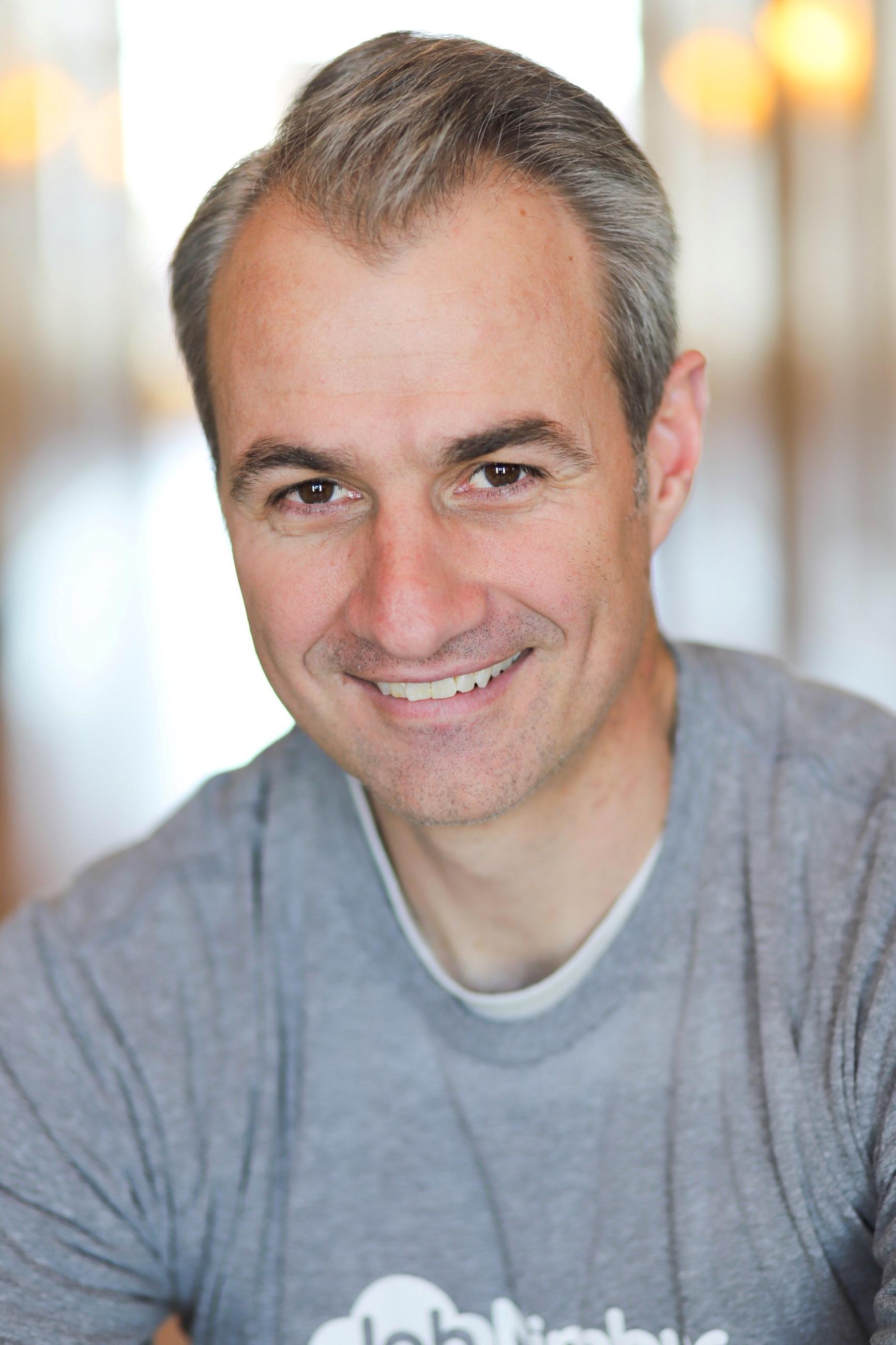Investing In Your Health
Defining Health
Health refers to physical, mental, and spiritual health. Your physical health can enable or restrict your ability to act. Your mental health affects your ability to think clearly, make good decisions, and connect with others. Health problems make a person much less effective and efficient in developing resources. Investing in and maintaining good health is essential to your success. Since this book isn’t a health book, we will only talk about health generally. If you need or want to do further research, get medical assistance or seek professional counseling. Your health always needs to be a top priority.
No one can control the genetics they were born with, but everyone can minimize exposure to disease and optimize their diet, exercise, and sleep. Missing work because of sickness leads to both a loss of time and money. Working with optimal health allows you to learn faster, think more clearly and be more productive at whatever you are doing.
Having a Healthy Diet
When I grew up, we had the food pyramid with grains as the base, fruits and vegetables in the middle, dairy and meat next, and finally fats, oils, and sweets sparingly at the top. Eating cold cereal with milk in the morning was considered part of a complete breakfast, and pretty much all fat was considered bad. As an adult, I’ve tried a vegetarian diet, keto, Atkins, and many other ways of eating. For a few years, I made green smoothies for breakfast every morning, which took a lot of time and effort. I read The Secret Life of Fat and The Complete Guide To Fasting, which really changed my mind about fat and breakfast. I’ve also noticed a large difference in diet preference between the men and women in my family. I’ve found that with my current routine, I feel better if I don’t eat breakfast, eat meals with proteins and vegetables, and try to avoid processed sugar. In contrast, my wife feels better when she eats breakfast. As we go through life, adjust routines or change schedules, our health needs change. Pay attention to your body and keep testing things out to see what works best for you.
Your diet has a significant impact on your physical health and your mental health. Be very conscious about what you put into your body. A healthy diet should avoid or minimize things that are harmful to the body, such as alcohol, soda, drugs, and tobacco. Certain habits, such as smoking, drinking alcohol, and using drugs, can result in a loss of money (financial resource), time (human resource), impaired health (human resource), and sometimes lead to jail or prison (a massive loss of time and money). A popular YouTube creator, Chris Williamson, showed how alcohol affected his resources when he went 1,000 days without drinking. He said that he was more productive (time), more confident (abilities), better able to build habits (abilities), got better sleep (health), increased his income (financial), reduced his expenses (financial), improved his mental sharpness (health), and filtered out bad friends (social). His experience is a great example of super investing where you get many resource gains from a single action.
Too little food, too much food or the wrong food can be detrimental to your health. In general, eat whole foods where possible and minimize processed food. Spending money on healthy food can be worth it, but it can also become excessively expensive. Learn which foods need to be high quality and which foods can be lower quality. Some of my health-focused friends only buy meat, eggs, and dairy products if they are organic, locally grown, and as high quality as possible. Figure out what works well for you. Investing in good meals is an investment in your family’s health (human resources).
Seek good sources for health advice. Just because people have fancy letters behind their names, such as MD or PhD, doesn’t mean they have been trained in nutrition or know what they are talking about. You wouldn’t follow financial advice from a homeless person, so don’t take health advice from unhealthy doctors or health professionals. As always, search out successful people, learn what you can from them, emulate the habits you want, listen to your body and find out what works for you.
Exercise
The human body needs to move to be healthy. In fact, exercise doesn’t only affect your body; it also affects your moods. Working on your health and fitness can allow you to connect socially with family and others that are interested in fitness, sports, or outdoors activities. You need to exercise regularly to avoid many health problems, so find a routine that works for you. Exercise can be healthy, but in excess, it can hurt your body and consume a lot of your time. Every activity has certain risks. Some activities can cause a brain injury, like American football or soccer. Some involve overuse of the knees, like jogging or volleyball. Take risk factors into account, and choose your activities carefully. I stopped playing American football in high school because I didn’t like the physical injuries I was experiencing. Now I mainly walk, snow ski, mountain bike, lift weights, and play volleyball, which have benefits and risks that I feel are more appropriate for me.
Hard physical labor is a form of exercise; however, it usually limits the useful life of the body. Physically demanding jobs usually can’t be done for more than twenty or thirty years because of the wear and tear on the body. If you are involved in work that is physically demanding, you need to account for how long you can work when choosing a long-term strategy for creating and growing financial resources. (More on this topic will be discussed in later chapters.)
Sleep
Sleep is one of the most important factors to maintaining good health. Matthew Walker’s book Why We Sleep: Unlocking the Power of Sleep and Dreams is the best book I have ever read on sleep, and I would highly recommend it to anyone. I’ve recommended it to many people already, and they are all making changes because of it. Not getting enough sleep impairs your body’s ability to function and your brain’s ability to learn. It can cause mental issues and makes you more susceptible to illness, anxiety, ADHD, and depression. Everyone needs some degree of rest and relaxation, but rest should follow work and shouldn’t be excessive. Too much sleep impairs mental ability and wastes time.
You probably already have an idea for how much sleep you need to feel well rested each morning. You can experiment with a little more or less sleep to figure out the amount of sleep that is optimal and try to get that amount of sleep each night. You might find it helpful to keep a sleep journal noting what time you go to bed, what time you wake up, how long you slept, and how you felt. Observe what you’re doing, experiment with different adjustments, and figure out what works for you. Where possible, try to have a regular sleep routine, since it helps your body function better. If you have serious sleep problems, don’t brush it off. Get help as soon as you can so you can function well and feel your best.
If you don’t sleep enough, you will have headaches that hinder your ability to accomplish the things you want to. Sleep deprivation also reduces your ability to learn and retain new things. It reduces your reaction time and in some cases has been shown to have a similar effect as being drunk. One family I know tried to extend their vacation by driving through the night and ended up in a car accident that killed the mother and daughter. Chronic sleep deprivation also causes physical and mental health issues as you age, reducing the total time you have in your life and your ability to function well with that time.
Maintenance and Exposure
Body maintenance is very useful for keeping your body performing at a high level. A daily hygiene routine puts your teeth and body in a good state to perform and allows you to interact effectively with others. If people don’t want to be around you or associate with you because your clothes are dirty or because you stink, it will greatly impair your ability to be successful in building social connections and to be successful in life. I had some relatives who rarely showered and didn’t use deodorant. They had an obnoxious body odor, so it was very unpleasant to be around them. Further, poor hygiene often leads to physical illnesses that can cause lasting damage to your body and even those around you. Our bodies are constantly exposed to many potentially harmful things, but if we have good sleep, a good diet, good exercise, and good hygiene, we usually don’t suffer from significant problems.
When I was in my teen years, I liked to drink soda and didn’t have a good routine for brushing and flossing my teeth. It turns out soda changes the PH in your mouth, and the sugar in the soda feeds bacteria that attack your teeth. I’d always have cavities when I went to the dentist that cost about $100 each to fix. By the time I was eighteen, I took better care of my teeth, but the damage had been done because the tooth fillings tend to degrade over time. I’ve had multiple root canals, which cost close to $500 each. I had to spend $1,600 dollars for an endodontist to fix a root canal that had become infected. It was so frustrating as a young father with very little money, because I knew that if I had just maintained my teeth better I could have saved over $2,000 on just that one tooth. I made sure to tell my experience to my children and teach them about proper dental care. They take care of their teeth much better than I did, we don’t have soda regularly, and they have had very few, if any, cavities.
Minimize your exposure to diseases and harmful chemicals. Wash your food, keep your house clean, and wash your hands regularly. Avoid sexual relations with a person who has STDs or other diseases. A few minutes of pleasure can result in a shorter life span (loss of time), a lifetime of suffering (loss of time, mental health loss), and medical bills (financial loss) for both the individual and the family.
Relaxation
We all need time to relax and recuperate. However, we can often call things relaxing when they are really just a waste of time. I used to spend entire Saturdays alone watching game after game of college football. Afterward, I always felt tired. If my team lost, I would feel angry. That relaxing time never really felt relaxing. It actually damaged relationships with my family and wasted time, so I decided to stop doing it. Now I never watch football games alone and when I do watch games it is only for social reasons.
As a rule, if you don’t feel physically and mentally rejuvenated after a relaxing activity, then you are probably justifying an activity that is actually wasting time. For people who work in an office, exercise can be very rejuvenating. For people who do physical labor, sitting down and reading can be very relaxing. Find truly relaxing activities and then do them on a regular basis to maintain good physical and mental health.
Spiritual Health
Spiritual health mainly as alignment with what you believe to be your purpose for existence. If your actions aren’t in alignment with your mission, then you will not function very well. It is a good idea to think about, consider, and connect with your purpose on a weekly basis to maintain spiritual alignment in your life. The times that I have been traveling or don’t take the time to connect in a given week, I feel less effective the whole week.
Mental Health
Mental health is important and can greatly affect your ability to work productively. Mental health is often associated with problems in your physical health, such as sleep, diet, exercise, body maintenance, or other life issues. Since mental health issues or feelings are usually signals from the body that something is wrong, it is important to try to understand the underlying problem instead of just trying to use medication to treat the symptoms. In The Boy Crisis, Warren Farrell and John Gray outline how to effectively treat many mental health issues without prescription drugs; in fact, they actually point out that many of the prescription drugs only make the problem worse in the long term.
One of the most debilitating beliefs is when people accept the symptom diagnosis as a label instead of a problem to solve. One woman I talked with said she had depression, anxiety, and ADHD when she had gone to college away from home. Because she had all these symptoms, she didn’t believe she’d be a good parent, so she abandoned all her long-term goals. When I looked at the situation, it was clear she had left the structure and social resources of her home life and faced the new challenge of college, which caused anxiety. She went to college in a colder and darker climate than she was used to, probably had a worse diet (depression), and left the stimulation of her dance classes and family life (ADHD). I had a similar experience when I moved to St. Petersburg, Russia, in November. It was extremely cold and dark, I didn’t speak Russian, the food was weird, and I left all the structure of my family and friends. I was depressed, anxious, and in need of stimulation. Because I had remembered some of the ideas I learned from a Tony Robbins audio series, instead of trying to take a pill to solve my feelings, I looked at the underlying problems causing those feelings. I focused on my long-term goals, learned Russian, got to know the culture, and learned what food worked for me. It wasn’t easy, but ultimately the symptoms were eliminated when I made the changes my body was telling me needed to happen.
There are certainly exceptions, but in most cases that I’ve seen, taking a pill is like putting a sticker over a fuel warning on your car. You haven’t solved the problem; you’ve just hidden the symptom temporarily, and you will usually have larger issues in the future, like running out of gas on the freeway. There is no user’s manual for our bodies that tells us what every warning message means like there is for a car, but viewing our feelings like warning messages will help us identify the underlying cause instead of just the symptoms.
There are certainly cases where people suffer from underlying genetic, traumatic, or physical issues. In those cases, work with professionals to identify the source and find solutions. I’ve seen many cases where mental health professionals have been very useful, but be very cautious about accepting debilitating labels that cause you to need ongoing therapy or drugs. If the therapist or doctor you are working with doesn’t have a short-term plan to get everything fixed, go find a better therapist or doctor. There is an overdiagnosis of mental health conditions because many therapists and doctors are making any “negative” feeling into a disease. In her book Future Tense: Why Anxiety Is Good For You (Even Though It Feels Bad), Tracy Dennis-Tiwary shows how anxiety is actually good for you if you understand it correctly. Feeling sad when you move to a new place is normal; it is your body telling you that you need to make friends for emotional support. Being depressed when you don’t sleep and eat well is your body telling you to get better sleep and change your diet. I was a very active child to the point of driving my mom crazy. At one point, my mother took me to the doctor to see what he recommended, and thankfully the doctor didn’t give me any ADHD medication. In retrospect, I think that the high level of energy that has made me successful in life would have been taken from me by the medication.
Health Assessment Questions
Are you currently healthy in the following areas?- Physically
- Do you have a consistent sleep schedule where you feel well-rested in the morning?
- Do you have a diet that gives you energy?
- Do you have a regular exercise routine?
- Are you free of harmful or addictive substances?
- Do you regularly visit your doctor?
- Mentally
- Are you experiencing any mental health issues? Are they byproducts of poor physical health?
- Do you have family and friends that can help you deal with tough situations?
- Spiritually
- Are you living your life according to your mission and values?
Health Investing Quick Guide
- Get a consistent sleep schedule.
- Change your diet to give you more energy.
- Find a weekly exercise routine that works for you.
- Remove harmful and addictive substances, such as tobacco, alcohol, and drugs, from your diet. This saves you money and improves your health.
- Go to a doctor or therapist to deal with any persistent health issues.
- Regularly visit your doctor for a physical to make sure you catch any potential health issues as early as possible.
- Find a group of productive friends in your community to help avoid mental health issues.




